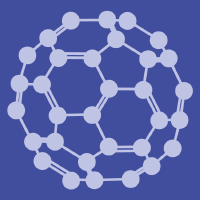Topic Menu
► Topic MenuTopic Editors


Proteins for Targeting and Delivering Therapeutic Nanomaterials

Topic Information
Dear Colleagues,
The increasing incidence of cancer has turned research into new experimental treatments into a crucial issue in the fight against this devastating disease. In this sense, nanomaterials have greatly advanced in recent decades because of their tremendous therapeutic potential. Although some of the nanosystems base their activity on passive targeting taking advantage of the increased production of blood vessels and their permeability in tumor areas (known as the EPR effect), the design of these nanosystems without any specific vectorization presents some drawbacks, such as a non-specific administration of the drug and potential accumulation in undesired areas, which increase the potential side-effects associated with the therapeutic treatments. In the search for potential solutions to the lack of specificity of therapeutic agents, encapsulation and/or active targeting is being developed focusing on the use of specific molecules such as peptides, antibodies or proteins incorporated on the surface of the nanosystems, as an alternative strategy that allows greater efficiency in the vectorization toward tumors. Proteins are very good candidates for the design of this kind of selective material because of their biocompatibility, easy functionalization, high loading capacity, and their potential active targeting, as a wide variety of cancer cells upregulate some proteins, accelerating their cellular uptake and overexpressing their receptors. Therefore, the use of proteins as vehicles for delivery is a successful strategy for introducing therapeutic agents based on nanomaterials, and a wide variety of formulations based on proteins have been demonstrated to target cancer cells directly and selectively. Moreover, the functionalization of nanomaterials with proteins usually leads to molecular interactions between proteins and the tumor microenvironment, not only improving the selectivity of the systems, but also enhancing the anticancer action both in vitro and in vivo. Therefore, this Special Issue will highlight the current state of the art in the use of proteins as target and delivery molecules incorporating different nanomaterials, focusing on the future prospects of this kind of systems for improving current therapies in a preclinical context.
Dr. Diana Díaz-García
Prof. Dr. Santiago Gómez-Ruiz
Topic Editors
Keywords
- protein
- targeted therapy
- biocompatibility
- nanomaterial
- anticancer
- cytotoxicity
Participating Journals
| Journal Name | Impact Factor | CiteScore | Launched Year | First Decision (median) | APC |
|---|---|---|---|---|---|

Biology
|
4.2 | 4.0 | 2012 | 18.7 Days | CHF 2700 |

Cancers
|
5.2 | 7.4 | 2009 | 17.9 Days | CHF 2900 |

Current Oncology
|
2.6 | 2.6 | 1994 | 18 Days | CHF 2200 |

Nanomaterials
|
5.3 | 7.4 | 2010 | 13.6 Days | CHF 2900 |

Onco
|
- | - | 2021 | 18.3 Days | CHF 1000 |

MDPI Topics is cooperating with Preprints.org and has built a direct connection between MDPI journals and Preprints.org. Authors are encouraged to enjoy the benefits by posting a preprint at Preprints.org prior to publication:
- Immediately share your ideas ahead of publication and establish your research priority;
- Protect your idea from being stolen with this time-stamped preprint article;
- Enhance the exposure and impact of your research;
- Receive feedback from your peers in advance;
- Have it indexed in Web of Science (Preprint Citation Index), Google Scholar, Crossref, SHARE, PrePubMed, Scilit and Europe PMC.

